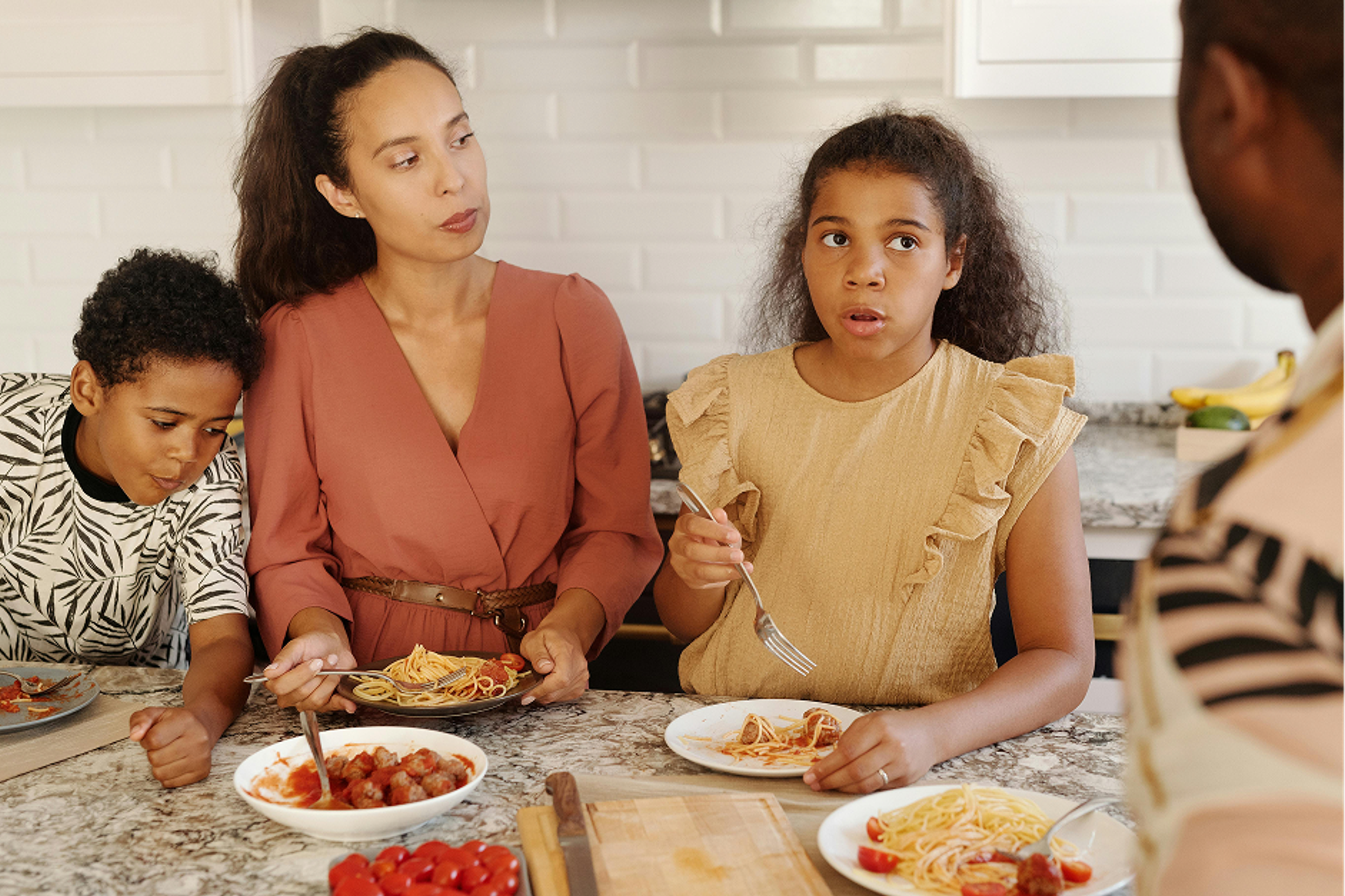
- Mentors can be a powerful addition to an eating disorder treatment team. Working with those who have lived experience in eating disorder recovery can provide empathy, first-person advice, and understanding.
- Research shows that mentorship can improve the odds of achieving full recovery across eating disorder diagnoses. Evidence also suggests that caregivers can benefit from working with mentors.
- At Equip, patients are matched with a dedicated care team that includes a peer mentor. If their loved ones are involved in treatment, they are matched with a family mentor.

In the early days of her eating disorder treatment, Maris Degener wasn’t sure if true recovery was really attainable. Her own research led her down rabbit holes of misinformation and misconceptions about who gets eating disorders and what life on the other side of treatment supposedly looked like—and it didn’t look good. She resigned herself to the idea that full recovery simply might not be possible or worth the effort.
“The biggest message I received time and time again was that things might improve a little bit, but there would always be a ceiling,” she says. “This made it hard for me to sustain motivation towards recovery or know what was truly possible.”.
Luckily, Degener persisted in her treatment and eventually met others who’d walked the same path. “It wasn't until I started finding others who were a bit further along in their recovery that I could start having these, ‘that's possible?’ moments,” she says. “Like, ‘you can really eat that sandwich with real bread and not worry about it?’ and ‘you can really go out to a restaurant spontaneously and not scour the menu beforehand?’”
For a long time, Degener believed that she’d gone as far as she could in recovery, and accepted that her eating disorder would always have at least some sort of hold on her. But seeing examples of others thriving and fully free from the shackles of their illnesses made her wonder if she could be that liberated too. “It was scary to think that there might be more work for me to do,” she says. “And at the same time, it was a push I needed to continue to challenge the eating disorder voice even more, and pursue new challenges and chapters in my recovery. There was hope there, even if it was scary or uncertain at times.”
Today, Degener serves as Equip’s Director of Peer Mentorship, leading some of our most valuable team members: peer mentors. At Equip, each family is matched with a dedicated five-person team that includes a physician, therapist, dietitian, and two types of mentors: those who have personally recovered from an eating disorder (peer mentors), and those who have supported a loved one through eating disorder recovery (family mentors). These two roles are invaluable in treatment and, according to research, may make a significant difference in a patient successfully achieving lasting recovery.
What the research says about the importance of mentorship
While many studies have demonstrated the profound impact mentorship can have on mental health conditions like depression and anxiety, few eating disorder treatment programs integrate lived experience the way Equip does. But both lived experience and research confirm the value of mentorship for eating disorders specifically.
According to a 2019 study published in The International Journal of Eating Disorders, peer mentorship was shown to be effective in addressing cognitive and behavioral eating disorder symptoms. Out of sixty outpatients with anorexia, bulimia nervosa, or binge-eating disorder (BED), those who received mentorship from peers in recovery had greater reductions in body dissatisfaction and anxiety than those who received support from people without lived experience or those who were placed on a waiting list for support.
Real-life experience bears out this research. “Working with someone who had been through the whirlwind of recovery allowed me to feel truly seen,” says Equip Peer Mentor Stacy Jones. “I could finally talk to someone who spoke the same language, and modeled that it was possible to get through it. It provided an energy and hope to my recovery that I didn't realize I was missing.”
Degener says that in her experience, she’d felt limited to only discussing “surface-level” elements of her eating disorders like body image concerns with those who hadn’t experienced an eating disorder themselves. “Eating disorders are highly complex and nuanced experiences,” she says. “It’s very hard to relate to or fully understand how greatly they can impact someone's life until you've had an intimate experience with one, whether in yourself or someone you love.”
When she connected with peer mentors, however, she finally felt able to open up about deeper issues. “I definitely didn't feel comfortable sharing with most people that when my eating disorder was loud, I acted far outside my values, even being physically violent with my family members or hurling insults at them,” she says. “So much of recovery can be tethered up in shame and secrecy, and to have someone who can meet you with true non-judgment and compassion can allow you to talk about the deepest challenges of an eating disorder in a new, supportive way.”
Mentorship is also a powerful way to overcome the stereotypes that may prevent some people from seeking treatment. There’s a pervasive myth that eating disorders tend to affect thin, white, affluent girls—when in reality, they affect people equally across genders, races, ethnicities, socioeconomic status, and body sizes. This misconception can be incredibly alienating for those struggling who don’t fit the mold of what society thinks an eating disorder looks like—and mentors can help with that. Being able to connect with someone who shares your experience or identity can be incredibly powerful in instilling hope and a belief that treatment will work.
Family mentorship matters too
The value of mentorship isn’t limited to patients: research has also indicated that the role can have a positive impact on loved ones of the patient as well. According to a 2020 report conducted by F.E.A.S.T. in collaboration with Project HEAL, there is often a steep learning curve for loved ones attempting to understand the complex terrain of eating disorders. In addition to requiring educational materials, parents and caregivers need specialized strategies for managing care, as well as treatment resources. F.E.A.S.T. and Project HEAL’s research revealed that parents greatly benefited from their own peer support—especially the education and compassion it provided them.
“Serving as a family mentor gives new meaning to everything I’ve learned the really hard way about helping a child through eating disorder recovery,” says Equip Family Mentor Kristi Humston. “The gift of hindsight, however, is seeing how the experiences we didn’t ask for but survived can result in hope and lived ‘expertise’ that helps to make the journey for others a little easier.”
Among the many important takeaways Humston hopes to drive home as a family mentor, there are two essential points she covers in her first conversation with caregivers. “First, letting them know that they did not cause the eating disorder,” she says. “And second, that they may as well throw logic out the window. Letting go of the guilt and logic allows space for real conversation and real progress to be made.”
While the expertise of trained clinicians—including a medical doctor, therapist, and dietitian—is essential to eating disorder recovery, these kinds of empathic insights can often only come from someone who has been through it themselves. And when you’re in the thick of eating disorder treatment, overwhelmed and unsure of what the future holds, these can often be the pieces of wisdom that give parents the strength and motivation they need to keep going.
Forging a deeper connection that reinforces recovery
“There are many small but highly impactful moments in recovery that can be hard to go through alone,” Degener says. “I'll always remember an Equip peer mentor supporting a patient through sorting out some old clothes that they were having a difficult time parting with. The peer mentor could offer jokes or distraction when needed, hold space while the patient cried, or simply be there quietly as a gesture of support. Recovery can be so lonely and hard to describe at times. To just have someone to walk alongside you can be incredibly meaningful.”
Jones adds that mentors also play a critical part in reducing the stigma around eating disorders and helping patients and loved ones reframe their perspective. “Mentorship can be an incredible place for reducing shame—and eating disorders are often fueled by shame,” Jones says. “The shame can even become one of the main ways we relate to ourselves, developing into a deep-rooted belief that dictates how we live our lives. Mentorship is a place of compassion and acceptance because mentors get it. And this creates a pathway for shame to unravel.”
To illustrate how her relationship to mentorship has truly come full circle since her days as a patient, Degener says her role as a mentor has also benefited her own long-term recovery. “I find it to be a healthy source of accountability,” she says. “If I'm going to be ‘talking the talk’ with patients, I'm going to need to ‘walk the walk’ in my own recovery. I get to talk to individuals every day about the benefits of recovery and the value in challenging the eating disorder, and in that, I'm reaffirming those truths for myself, too. At its best, mentorship can be a wonderfully meaningful relationship for everyone involved.”
- Fogarty, S. et al. A systematic review and meta-synthesis of the effects and experience of mentoring in eating disorders and disordered eating. Eating Behaviors, Volume 21, 2016, Pages 66-75, ISSN 1471-0153, https://doi.org/10.1016/j.eatbeh.2015.12.004.
- Munson, M. et al. MENTORING FOR YOUTH WITH MENTAL HEALTH CHALLENGES. National Mentoring Resource Center Population Review, December 2016.
- Ranzenhofer, L et al. Peer mentorship as an adjunct intervention for the treatment of eating disorders: A pilot randomized trial, International Journal of Eating Disorders, Volume 53
- Collins Lyster-Mensh, L. Communities of HEALing Program for Primary Caregivers Report. Conducted by F.E.A.S.T. by contract with Project HEAL, June 2020.







